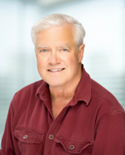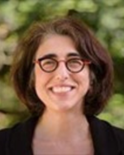We hope you'll enjoy learning from these experts!
All times are in CT
Register for the 28th Annual Meeting
Presidential Symposium
Wednesday, May 14 | 10:15 a.m. - 12 p.m.
Drew Weissman, MD, PhD
 Drew Weissman, MD, PhD, is a world-renowned physician and researcher at Penn Medicine, best known for his contributions to RNA biology and the COVID-19 vaccines. Weissman and Katalin Karikó, PhD, were jointly awarded the 2023 Nobel Prize in Medicine for their discoveries that enabled the modified mRNA technology being used in Pfizer-BioNTech and Moderna's vaccines to prevent COVID-19.
Drew Weissman, MD, PhD, is a world-renowned physician and researcher at Penn Medicine, best known for his contributions to RNA biology and the COVID-19 vaccines. Weissman and Katalin Karikó, PhD, were jointly awarded the 2023 Nobel Prize in Medicine for their discoveries that enabled the modified mRNA technology being used in Pfizer-BioNTech and Moderna's vaccines to prevent COVID-19.
Mike McCune, MD, PhD

Mike McCune, MD, PhD, is head of the HIV Frontiers Program at the Gates Foundation, best known for his contributions to understanding HIV pathogenesis and for the invention of humanized mice. Prior to joining the foundation in 2018, Dr. McCune was chief of the division of experimental medicine at the University of California, San Francisco. He also co-founded the companies SyStemix (1988) and Progenesys (1991), leading research efforts to develop antiviral medications and hematopoietic stem cell-based gene therapies for the treatment of HIV disease.
George Stamatoyannopoulos Memorial Symposium
Thursday, May 15 | 10:15 a.m. - 12 p.m.
Kiran Musunuru, MD, PhD
 Kiran Musunuru, MD, PhD, MPH, ML, is Professor of Cardiovascular Medicine and Genetics in the Perelman School of Medicine at the University of Pennsylvania. His research focuses on the genetics of heart disease and seeks to identify genetic factors that protect against disease and use them to develop new therapies.
Kiran Musunuru, MD, PhD, MPH, ML, is Professor of Cardiovascular Medicine and Genetics in the Perelman School of Medicine at the University of Pennsylvania. His research focuses on the genetics of heart disease and seeks to identify genetic factors that protect against disease and use them to develop new therapies.
Tippi C. MacKenzie, MD

Tippi MacKenzie, MD, is a pediatric and fetal surgeon at the University of California, San Francisco, and Director of the Broad Stem Cell Center. Her lab examines fetal biology and maternal-fetal tolerance with the goal of developing new fetal therapies for patients with genetic diseases or pregnancy complications. She has moved two fetal molecular therapies from the laboratory to the clinic as FDA-approved phase 1 clinical trials: in utero hematopoietic stem cell transplantation to treat fetuses with alpha thalassemia and in utero enzyme replacement therapy to treat fetuses with lysosomal storage disorders. Her ongoing research is focused on developing prenatal somatic cell gene therapies using antisense oligonucleotides, gene therapy and genome editing.
Register for the 28th Annual Meeting